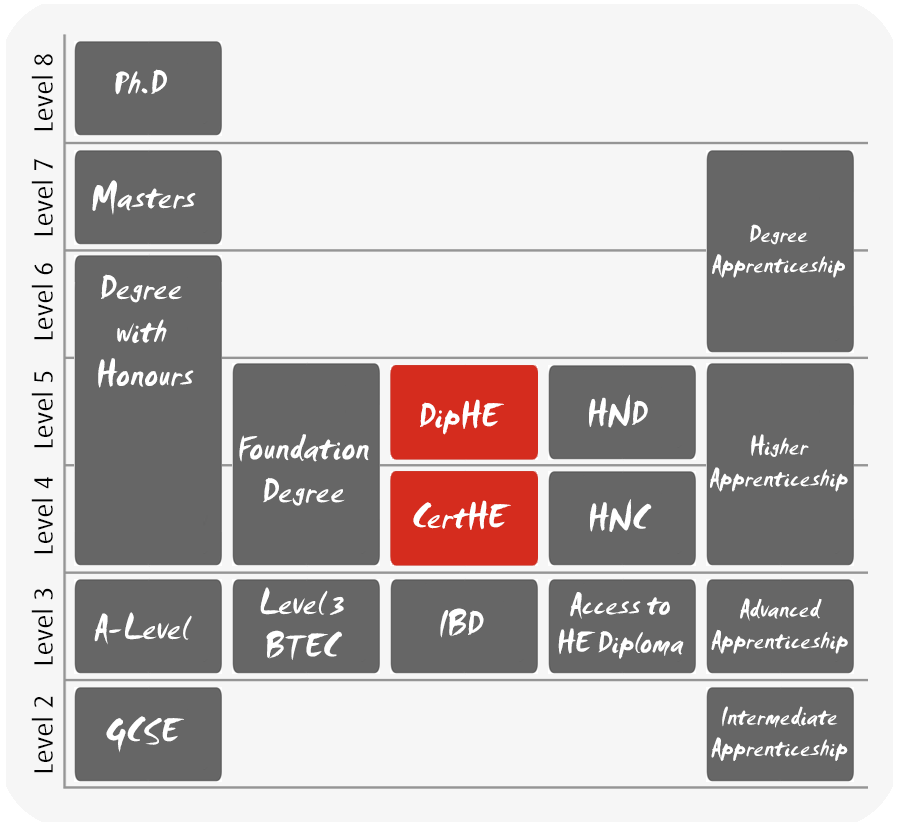

Certificates of Higher Education (CertHE) and Diplomas of Higher Education (DipHE) are qualifications that equal either the first year (for a CertHE) or the first and second years (DipHE) of an undergraduate degree.
Most people will take CertHE or DipHE after they have completed college or sixth form qualifications like BTECs or A-Levels. Sometimes people will choose to take a gap year before they start, or even spend some time working before they begin.
Whilst some courses are a little shorter a CertHE qualification will usually take a year, and you can usually expect to double the amount of time you’ll take if you work part time. It is the same with DipHE qualifications, which usually take two years full time, and four part time.
Certificates and Diplomas of Higher Education are perfect for people who want a university experience, but do not want to take a full undergraduate degree qualification. The great thing about them is that you will leave university with a recognised qualification, but don’t have to commit to three years of study when you begin.
A popular option with both people who complete either a Certificate and Diploma of Higher Education is to carry on studying for one or two more years to gain an undergraduate degree. Of course, not everyone does this, and it is also common for people to go on to start a career in the area in which they have studied.
Certificates and Diplomas of Higher Education usually taught in universities, and you’ll often find that there are undergraduate degrees in similar subjects available.
Most Certificates and Diplomas cost the same per year as an undergraduate degree. For students who are from the UK and studying in England this can be up to £9250 a year, they can cost more for students who are not from the UK. This might sound like a lot, but don’t worry, you don’t have to pay it all up front before you study. Student finance is there to help out with a loan to cover the cost of university, and the good thing is that you don’t have to start paying it back until you have got a job and are earning enough money to do so. You can learn more about student finance on our what is: student finance page. If you are thinking about studying abroad the amount you’ll pay depends on which country you are interested in studying in.
The qualifications grid shows some of the most common qualifications in the UK, and their levels. There are 8 levels of study in the UK, remember these don't relate to how long qualifications take, but they are used to show how qualifications compare with each other. Use the grid to find out what level CertHEs and DipHEs are in comparison with other qualifications.

You apply for CertHE and DipHE degrees through UCAS, where you will also find all of the available courses in the UK listed.
There is loads of information out there about university qualifications. The Student Room is a website where current and prospective students can discuss their experiences at university, and the Complete University Guide is all about how to choose the right course for you. Of course, you can carry on exploring the Make Your Mark site to learn more about what it is like to study at Middlesex University.